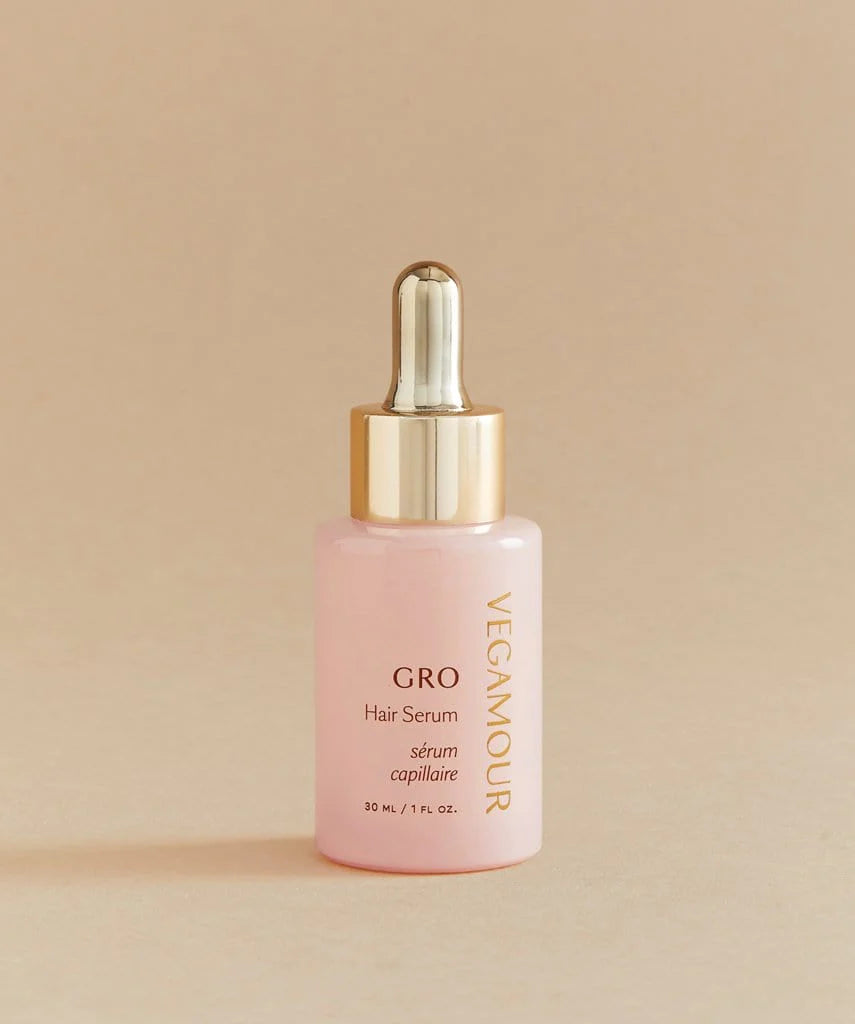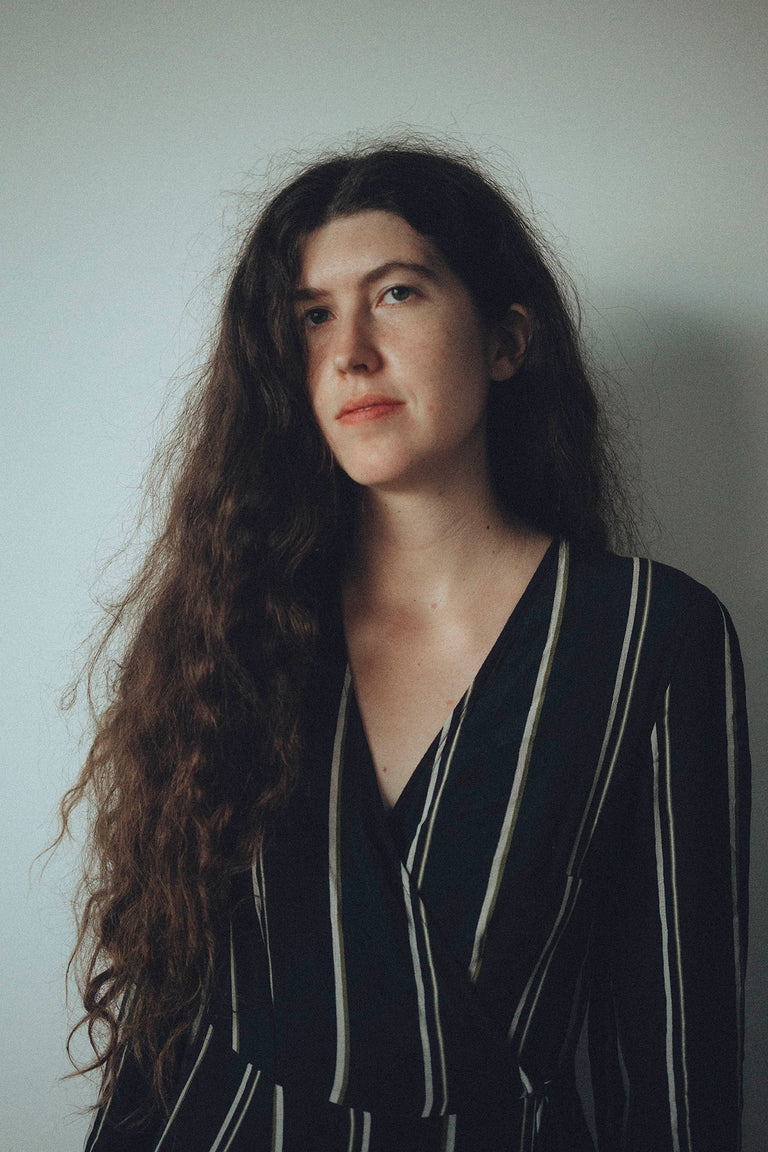Thinning hair can be frustrating and leave you frantic for a solution. But with so many factors that can contribute to hair thinning, it’s hard to know where to start. To help, VEGAMOUR got the inside scoop from six hair experts.
Read on to discover what might cause this problem and how to stop it — plus, find out what products can help encourage thicker looking hair.
1. Increase Your Iron
“Iron deficiency is one of the world's most common nutrient deficiencies, and there is a strong association between iron deficiency and hair loss/hair thinning,” said clinical nutritionist Erica Zellner. “Iron deficiency can cause a type of anemia, which is when there aren’t enough healthy red blood cells to deliver oxygen to your cells and hair follicles. Focusing on incorporating iron-rich foods, like dark leafy greens, beans and lentils, into your diet regularly will help prevent iron-related hair loss and can even reverse it! It's important to remember that vegetarian and vegan sources of iron are less bioavailable than animal sources. To support better absorption within your body, I always recommend eating your iron-rich foods with a source of vitamin C.”
Shop: GRO Collection for Thinning Hair
2. Listen to Your Body
“Many people see changes in their hair when they change their diet,” said registered dietitian and public health nutritionist Paula Doebrich. “In some cases, it is due to extreme caloric restriction. When you restrict energy intake, you are likely also not meeting your needs for many nutrients. Fatty acids are something that may fall short. Fatty acids are needed for healthy hair and skin. If you get very dry and scaly skin, it could be due to a lack of healthy fats in the diet. To correct this, make sure you include foods like avocado, nuts, seeds and olive oil in your diet. Zinc is essential for hair growth and tissue repair. A common symptom of zinc deficiency is skin sores and hair loss. Zinc is found in whole grains. B-vitamins are also important for hair growth. While the biggest focus is usually on biotin, other B vitamins are also important. For example, a deficiency in vitamin B-12, which is only found in animal products, may result in thinning hair. This is because B-12 is needed for the production of oxygen-rich red blood cells, which are needed for healthy hair follicles.”
3. Keep Your Scalp Healthy
“Losing your hair not only affects your appearance, but it can also cause emotional stress and affect your confidence,” said clinical dermatologist and researcher Dr. Enrizza P. Factor. But there are a few things you can do to help stop hair loss. Maintain good hair and scalp care. Avoid harsh hair treatments like heating tools, hair dye and bleaching. Hairstyles like tight ponytails or braids can affect your hair as well. Keep your scalp healthy by washing your hair and scalp regularly. Any inflammation on the scalp will affect the hair growth cycle.”
4. Pump Up the Protein
“Stopping hair loss can be accomplished in a variety of ways,” said ASCM and NCSF Certified personal fitness trainer and nutritionist Michael Garrico. “One important thing to try is increasing your protein intake. It's possible that you're not receiving enough protein on a daily basis, which might impair hair development. Each day, you'll need 40 to 60 grams. You don't have to eat protein with nutrients if you drink it.”
Garricio suggests adding a protein powder — or protein-rich ingredients like hemp hearts, soy milk, or nut and seed butters — which can add a daily dose of protein to support your strands.
5. Care for Hair Inside and Out
“Hair thinning can be caused by both internal and external factors,” said Dr. Sandra El Hajj, who specializes in preventative health care. “So, when trying to prevent it, we have to find solutions that are both internal and external. Externally, applying coconut oil mixed with aloe vera to your hair can help nourish your scalp and provide necessary nutrients to your hair follicles. Only use a dab of this mix every night while massaging your scalp for a few minutes. Internally, we recommend a diet high in vitamin C to help synthesize collagen that can support healthy hair. Increasing your diet with proteins can also help keep hair luscious. Other micronutrients to keep in mind are vitamin A, zinc, copper and iron.”
6. Focus on Your Follicles
“Hair thinning can be genetic, the result of mechanical manipulation or a result of illness or aging in general,” said cosmetologist Ghanima Abdullah. A key solution is to focus on the health and strength of your hair follicles. “Keep mechanical manipulation gentle. Try not to brush and comb your hair forcefully, as this will snatch more hairs from your hair follicles. Don't comb or brush your hair while it's sopping wet, as it is at its most fragile at this point. Wait until it is merely damp, apply a leave-in conditioner and detangle with a wide-toothed comb. Tight pulling with ponytails and braids can cause inflammation and alopecia, so keep it gentle. If you notice hairs coming out with your hair clips or other accessories, avoid them.”
#include-related-slider#
Tackle Hair Challenges Today
Hair challenges can be a result of things like aging, poor scalp health, harsh treatment, vitamin deficiencies, illness or genetics. But that doesn’t mean you have to live with it.
In addition to our gentle and nourishing shampoos and conditioners, we recommend GRO Hair Serum. The daily serum contains vegan phyto-actives, such as mung bean, curcumin and red clover, which can support the appearance of longer, thicker, fuller looking hair.
There you have it! By following these expert tips and switching to hair-healthy, scalp-nourishing hair care products, you’ll can support fuller looking hair and stronger strands.
More From VEGAMOUR
- Shop: The Best Products for Thinning Hair
- 10 Vitamin Deficiencies That May Cause Hair Loss
- Can Caffeine Cause Hair Loss?
- 6 Tips & Tricks for Styling Thin Hair
Photo credit: Ольга Киреева/Pexels
Back



















